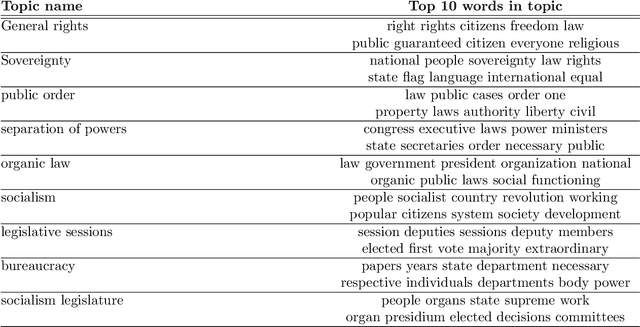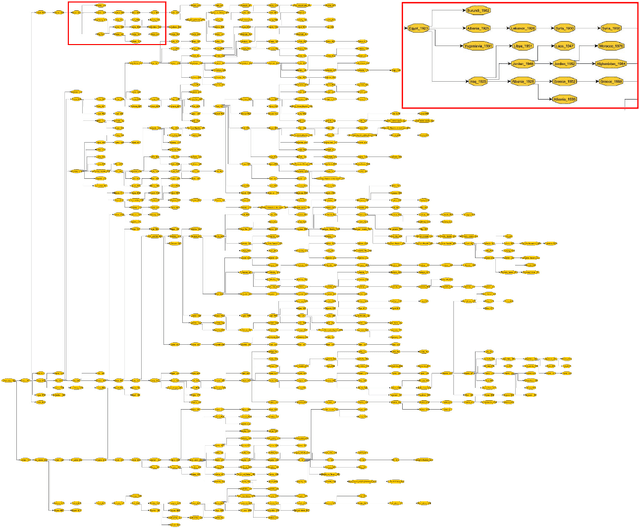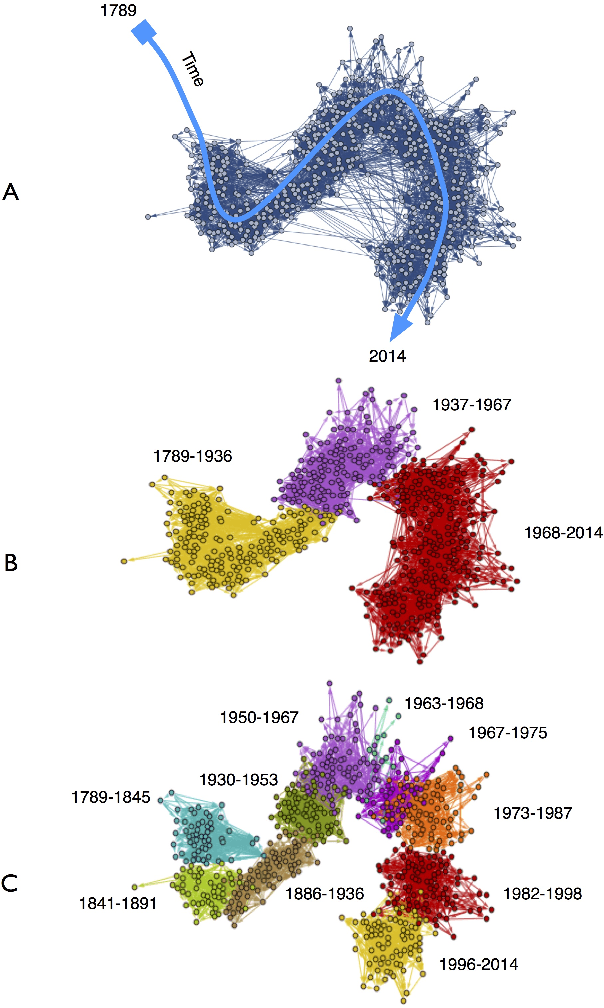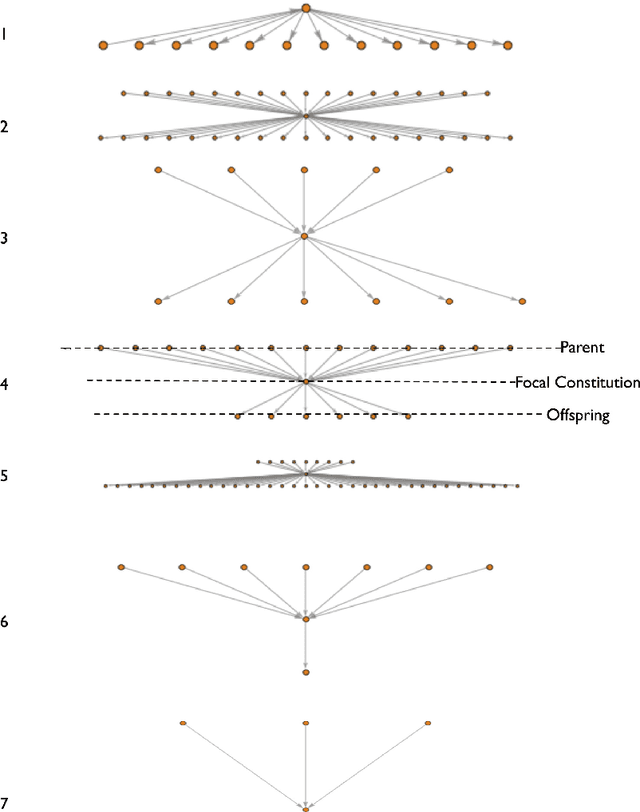Tom Ginsburg
The Cultural Evolution of National Constitutions
Nov 18, 2017



Abstract:We explore how ideas from infectious disease and genetics can be used to uncover patterns of cultural inheritance and innovation in a corpus of 591 national constitutions spanning 1789 - 2008. Legal "Ideas" are encoded as "topics" - words statistically linked in documents - derived from topic modeling the corpus of constitutions. Using these topics we derive a diffusion network for borrowing from ancestral constitutions back to the US Constitution of 1789 and reveal that constitutions are complex cultural recombinants. We find systematic variation in patterns of borrowing from ancestral texts and "biological"-like behavior in patterns of inheritance with the distribution of "offspring" arising through a bounded preferential-attachment process. This process leads to a small number of highly innovative (influential) constitutions some of which have yet to have been identified as so in the current literature. Our findings thus shed new light on the critical nodes of the constitution-making network. The constitutional network structure reflects periods of intense constitution creation, and systematic patterns of variation in constitutional life-span and temporal influence.
 Add to Chrome
Add to Chrome Add to Firefox
Add to Firefox Add to Edge
Add to Edge